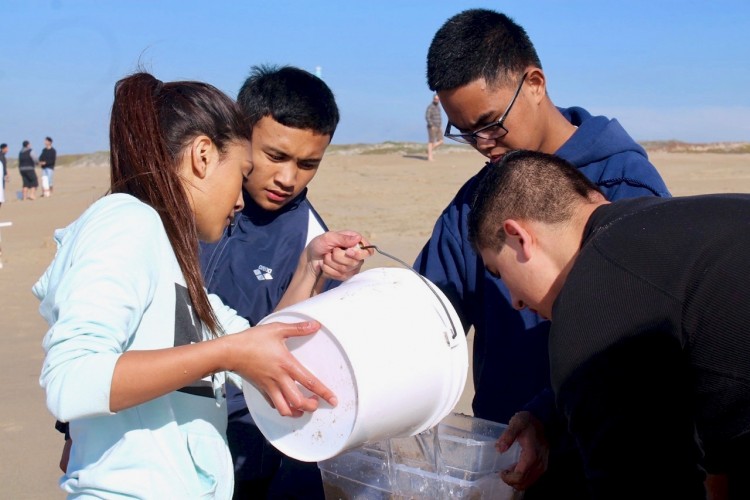New Publication: For Science and Self
Youth Interactions with Data in Citizen and Community Science
 Faculty director Heidi Ballard and
postdoctoral scholar Erin Bird were recently published in the
Journal of the Learning Sciences, in collaboration with UC
Davis alumni Emily Harris and Colin Dixon.
For Science and Self: Youth Interactions with Data in Community
and Citizen Science details how youth interact with and
discuss their data by analyzing eight school- and community-based
project sites. In doing so, the authors were able to document
opportunities for agentive learning with data in youth-focused
community and citizen science (YCCS). Their results, “shed light
on when and how conditions for expansive learning and agency get
established.”
Faculty director Heidi Ballard and
postdoctoral scholar Erin Bird were recently published in the
Journal of the Learning Sciences, in collaboration with UC
Davis alumni Emily Harris and Colin Dixon.
For Science and Self: Youth Interactions with Data in Community
and Citizen Science details how youth interact with and
discuss their data by analyzing eight school- and community-based
project sites. In doing so, the authors were able to document
opportunities for agentive learning with data in youth-focused
community and citizen science (YCCS). Their results, “shed light
on when and how conditions for expansive learning and agency get
established.”
In classrooms and community-based programs utilizing YCCS, youth contribute data that scientists, resource managers and community members will use in a larger context. Data can pass from a notebook in the field to an online database, from high school student to professional scientist. This “nested” data positions learners’ activities within larger datasets or projects, impacting youth agency.
Participant interviews demonstrated that youth perceive the data they produce as being used for the following purposes:
- broader scientific work
- their own learning
- community endeavors
Additionally, the authors found that “nested” uses of data were most significant when youth had opportunities to interact with end users, gain exposure to their contributions within the larger datasets, or take actions connected to their data. Still, not all participants were able to see, believe, or value that data would be used by others, beyond the scope of their program. The article’s analysis suggests that framing of task and purpose, nature of engagement with community users, data production protocols, and level of emphasis on youth-identified questions contribute to youth perceptions, fostering or undermining conditions for learner agency.
This study raises important considerations for design and implication of YCCS programs that strive to encourage meaningful work with data. To learn more, check out the full paper here. Find details on the special issue of the Journal of the Learning Sciences, themed “Situating Data Science”, here.








